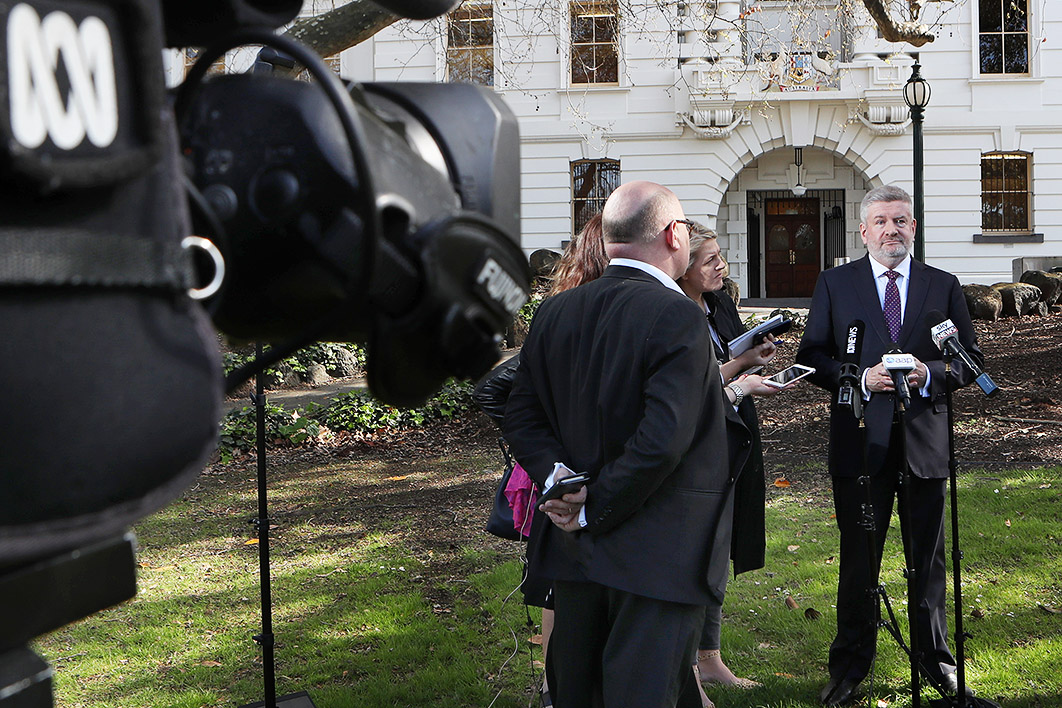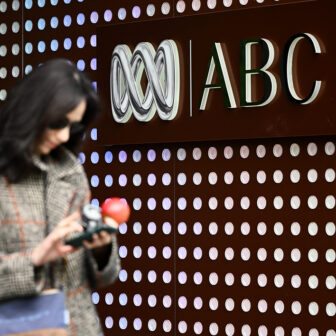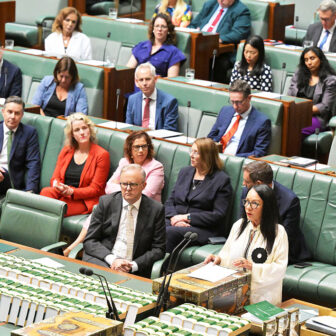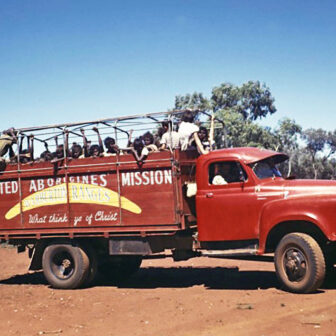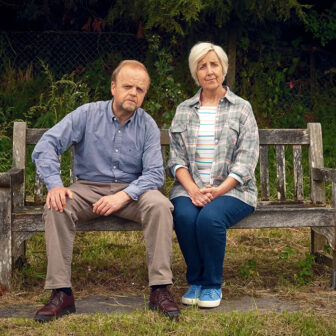The quality and legitimacy of the ABC’s current board of directors are rightly in the news. But the shortcomings on display last week raise another question: who did we miss out on when the government last chose who would sit on the board? Which better-qualified applicants did it reject? I can shed a little light on this question and share a lot of frustration.
Last year, it appears, an independent process considered eighteen people for appointment to the ABC board. Some of them were recommended to communications minister Mitch Fifield, but he instead appointed his own pick. Of the rejected ones, two don’t object to their identities being known, yet the department won’t reveal even their names. I say to all eighteen: time to speak up, people! We want to know who you are.
How do I know these bare facts? The answer is an exemplar of how freedom-of-information laws are failing to ensure transparency when governments misbehave.
The arm’s-length appointment process for ABC and SBS board members was created by the Rudd government with the aim of bringing an end to decades of stacking by both sides of politics. A nomination panel was set up to identify potential candidates, assess them against criteria and make recommendations to the minister.
But since the Coalition took power, the process has been trashed. First, the Abbott government nobbled the panel by appointing News Corp columnist Janet Albrechtsen and former Liberal minister Neil Brown. As the Australia Institute observed in a recent report on the process, both were “highly questionable appointments.” Albrechtsen, a former ABC board member, had made her hostility to the ABC clear, and Brown had told the Australian that if it were up to him he would “scrap the ABC and start over.”
Thankfully, appointments last year created a more balanced nomination panel. Chaired by former Treasury secretary and Westpac chair Ted Evans, the panel doubtless does its work diligently. But that hardly matters, because it is ignored. It meets and makes recommendations, and then the minister appoints other people entirely.
Three of the ABC’s current seven board members were appointed by Fifield despite not having been recommended by the nomination panel. They are Vanessa Guthrie (no relation to Michelle), Donny Walford and the most recent appointee, Joseph Gersh.
Another, current acting chair Kirstin Ferguson, was highly rated by the panel but withdrew before she was recommended. She was later persuaded by Fifield to accept appointment, and joined the board in 2015. Strictly speaking, she too is a direct ministerial appointment.
So who missed out — or rather, who did we, the Australian public, miss out on?
Almost exactly a year ago — on 4 October 2017 — I made a freedom-of-information request to the Department of Communications and the Arts asking for the nomination panel’s list of recommendations for the appointments made in February 2017, the round in which Vanessa Guthrie was given the gig despite not being recommended.
At that time, the minister’s press release said that while Guthrie had not been recommended, she “was identified by the government as having the requisite skills.” Oh yes? Guthrie had no media experience whatsoever, but her political views were well known. The year before her appointment, she had told the Australian Financial Review that “inner-city smashed avocado eaters” were unfairly targeting coal and the minerals industry. At the time, the ABC was facing constant government criticism over its reporting on the coalmining industry and energy security.
But so much for the appointee. Who missed out? A year after lodging my request, I still don’t know.
First, the department threatened to refuse my request because it would “involve substantial and unreasonable diversion of departmental resources.” In the negotiation process that followed, it emerged that this was because the documents included the curriculum vitaes of all those expressing interest in the appointment (not just those recommended, which is what I had asked for). I told the department I didn’t need the CVs. That’s what LinkedIn is for, I thought to myself. And I reiterated that I only wanted to know about the recommended applicants.
All that took until November. Then the department told me that I would have to pay for the request, so I sent the requested deposit of $160.96.
Then they told me they needed an extra thirty days for “third party consultations” with the people named in the documents. Eighteen people were involved, they told me. These, I assume, include the two who were appointed — Georgie Somerset, who had apparently been recommended by the nomination panel, and Vanessa Guthrie, who wasn’t. That left sixteen others, some of them recommended by the panel but rejected in Guthrie’s favour by the minister.
Six of the eighteen people apparently objected to information being released about them. Two did not. Another ten didn’t reply to the department’s letter asking their views.
By now it was nearly Christmas, and the department asked for another extension due to the Christmas shutdown. Then another extension. Then another.
Finally, on 16 February this year, the department refused my request, saying the documents were cabinet documents, that releasing them would breach personal privacy, and that the public interest did not outweigh these considerations.
A list of the ten documents not released was attached. It included three ministerial submissions, four cabinet briefs, two emails from the department to the minister’s office and — hey presto — the board nomination panel report, which was what I really wanted.
At the end of February I appealed against the department’s refusal to the Office of the Australian Information Commissioner, a theoretically independent statutory agency with the job of deciding freedom-of-information appeals, among other things. Not all the documents were cabinet documents, I wrote. In particular the board nomination report was created not for cabinet but for the minister.
I also argued that personal privacy in this case was surely outweighed by public interest:
ABC board positions are important public roles, and in this case the minister appointed a person not recommended by the panel. The only personal information that would be revealed is the fact that certain people applied and were recommended by the appointments panel. This is a low level of personal information and concerns only a public process.
That was at the end of February this year. The request then entered a deep black hole.
In August I got an email from the information commissioner’s office asking if I was still happy to exclude the CVs from my request. Yes, I said, breathing deeply.
And that’s the last I heard.
Is it too much to hope that after the events of the past week, the information commissioner might get round to my request? And might it be that the public interest considerations are now amply apparent?
A couple of days ago, meanwhile, the Australia Institute released a report on this trashed ABC board appointment process and recommended ways it could be made more transparent. It’s worth a read. And Fairfax Media reports today that parliament will consider another process for appointing the board. •
